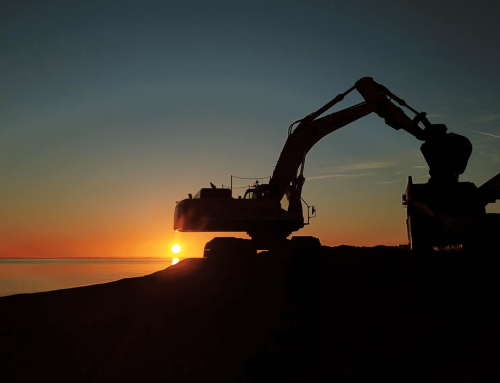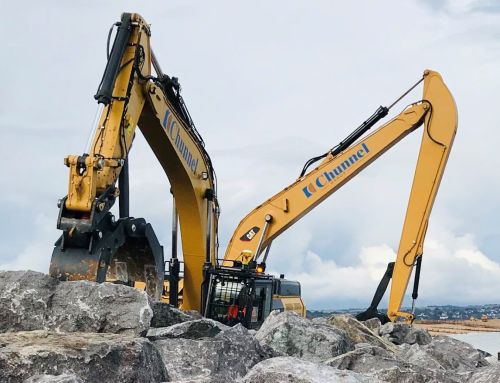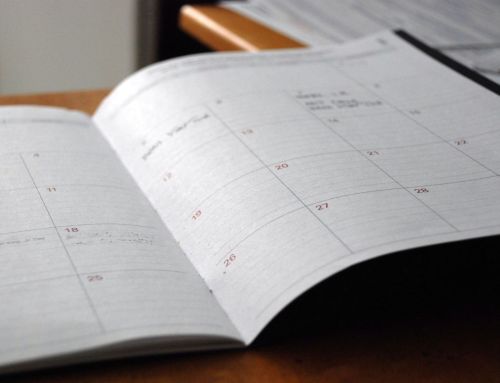Choosing the right plant hire equipment for your construction site doesn’t have to feel overwhelming when you know what to look for. At Chunnel Group, we’ve been helping builders and contractors across the UK for over fifty years, and we’ve seen firsthand how a bit of simple planning and honest chat can keep your project moving smoothly and within budget.
Start with what you really need
First up, think about the jobs you need done. Are you digging trenches for services, levelling out a garden, or moving a pile of soil off-site? Jot down everything that involves the need for a plant and note the space you have to work in. A narrow urban plot calls for different machinery than a wide open greenfield site.
Soil type matters too. Soft, clay‑rich ground is very different to reclaimed hardcore or rocky subsoils. If the ground is soft, you might pick a tracked machine to spread the weight and avoid sinking in, whereas firm ground might suit a wheeled loader that can move materials faster.
And don’t forget how long you’ll need each machine. A day rate with an operator could be perfect for a couple of days’ work, while longer jobs often work out better with weekly or monthly deals if you hire on a self‑drive basis.
Match the kit to the job, without overthinking it
Rather than getting lost in model numbers, pick machinery by task. For digging and trenching, a mini excavator in the three to eight tonne range is brilliant where space is tight. If you need more bite, step up to a ten to twenty‑five tonne machine, which shifts more soil each time.
For levelling, motor graders and dozers will give you smooth, even surfaces. If you want one machine that can dig, load and grade, compact track loaders are real all‑rounders thanks to their range of attachments.
To move materials, wheeled loaders and dumpers keep the site flowing, and telehandlers lift pallets or bags of cement to the first or second floor. For compacting ground, you’ll want rollers and vibrating plates, which firm up the base so slabs or tarmac settle without issues.
Operated hire or self‑drive – what suits you?
A common question is whether to take machines with an operator included, or hire them on a self-driving basis. Both have their perks. Operated hire means a CPCS‑certified operator turns up with the kit, looks after daily checks, refuelling and safe operation, leaving your site manager one less thing to worry about.
Self‑drive hire can be more economical for longer periods, especially if you already have qualified operators on your team. You handle fuelling, routine inspections and basic maintenance, but daily rates are usually lower. Have a chat with your hire specialist about your schedule and team skills, and they’ll help you find the right balance between cost and convenience.
Pick a supplier you trust
Plant hire is more than just fleet size. Reliability, safety record and responsiveness count just as much. Look for suppliers with recognised accreditations, like Construction Plant‑hire Association membership or SSIP certification, which show they follow industry best practice.
At Chunnel Group, every machine is checked under current LOLER and PUWER regulations before it leaves our depot, so you get the kit in tip‑top condition with paperwork in hand. If something does go wrong, our rapid response team aims to be with you quickly, fixing things on site or swapping machines out to keep you on track.
Nail the logistics
Getting big machinery to your site can be tricky if you don’t plan properly. Before you confirm your hire, talk through access constraints with your supplier. Are there low bridges, narrow lanes or weight‑restricted roads to navigate? Do you need a banksman’s assistance on arrival?
We arrange specialist low loader trailers, banksman services and any permits you need, so there are no nasty surprises. The clearer you are about your site layout and local restrictions, the smoother the delivery and collection will be.
Look beyond the headline price
It’s tempting to go for the cheapest daily rate you find, but that can leave you with hidden extras later on. Always check what’s included in the hire rate. Does it cover fuel, or do you need to refill before returning? Are attachments included or extra? What about insurance and weekend use?
Some hire companies bundle in a set number of operating hours each day, and charge by the hour after that. Others stick to a flat daily figure. Compare a few like‑for‑like quotes, factoring in transport, fuel policy, operator costs and insurance. Sometimes, a slightly higher rate is worth it if you get quicker breakdown cover and no surprise fees at the end.
Keep everyone safe and onside
You’ll need to make sure operators have valid plant cards, either CPCS or NPORS, and that every piece of hired kit carries its thorough examination paperwork. If you’re doing any lifting on site, check for LOLER certification and up‑to‑date PUWER inspection records.
Modern machines often come with safety extras like CCTV cameras, proximity sensors and reversing alarms. These not only protect people, they also help you prove you’re managing health and safety properly to clients and inspectors.
Go greener if you can
More sites now have environmental targets to meet. If that’s you, ask about low‑emission machinery that complies with the latest standards. Electric compact loaders or hybrid excavators can cut noise and fumes, making them ideal for city sites or noise‑sensitive areas.
Telematics systems in modern plants let you track fuel use and machine hours so you can optimise deployment and cut down on idle time. A good hire partner will share that data with you, helping you run a leaner, greener operation.
Make it official – contracts and extensions
Once you’ve chosen your machines and rates, get everything in writing. A clear hire contract should cover start and end dates, payment terms, deposit requirements, how to extend or swap kit and any cancellation fees. Know what notice you need to give if you want extra days, and what happens if you return the kit late.
We keep our contracts straightforward with no hidden small print. Your Chunnel Group account manager will guide you through every clause so you know exactly where you stand, letting you focus on the build instead of paperwork.
How it all comes together
Picture a job where you need trenching for utilities first, then final levelling before landscaping. We might send two zero‑tail swing eight-tonne excavators for the initial digging, followed by tracked telehandlers with levelling attachments. Dumpers and wheeled loaders shift spoil away and bring in topsoil, and a roller compactor smooths the final surface.
All machines arrive early, our banksman guides them in, and our operators get to work. If one machine needs a part swap mid‑hire, our service van is there the same day. At the end of the week, you hand the keys back with no surprise charges, and the project stays on programme thanks to efficient plant use.
Choosing the right plant hire equipment doesn’t have to be a leap in the dark. By focusing on your site’s needs, matching tasks to the right machines, picking between operated or self‑drive hire, and partnering with a trusted supplier, you’ll keep your project running smoothly and avoid costly delays.
We’d love to help you find the perfect plant hire solution, whether you need diggers, loaders, rollers or telehandlers. Give us a ring, drop us an email or visit our website for a friendly, no obligation chat and quote.



